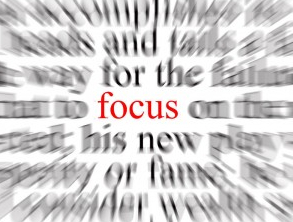Where do your ideas, solutions and inspirations come from? If you’re like me, sometimes they originate unexpectedly, from sources that have no direct connection to any challenge or topic at hand. If you’ve read my articles before you know that I find sailing and wilderness camping especially fruitful venues for leadership and teamwork insights. Surprisingly, earlier this a tennis court served up some valuable lessons.
I am returning to tennis after a long absence, due primarily to shoulder surgery a few years ago. After a few friendly games, I signed up for a series of tennis clinics, a chance to learn from a pro what bad habits I’ve retained and how to step up my game. Before long, the drill instructor noticed how when approaching a shot I was often tentative and even back away some. I haven’t told him yet how his next words of advice resonated far beyond the court that day or even tennis: “Step up and into the shot, Al; good things happen when we step up, and bad things happen when we don’t.” There it was! A valuable insight that not only pays dividends for tennis, but for leadership and life: “Good things happen when we step up; bad things happen when we don’t!”
What does “stepping up” look like? For tennis, leadership and life, here are some fundamentals:
- Motivation. In general we are motivated by firmly held values, the prospect of something we deeply desire or something we wish to avoid; the greater their significance, the greater the motivation. We need to have a “why;” what is your “why?
- Visualization. Any performers at the top of their game know to rehearse or visualize their best performance and intended outcomes in their minds. In the words of Napoleon Hill: “Whatever the mind can conceive and believe, it can achieve. Do you have a clear picture of what you are striving for?
- Focus. Synchronously, about the same time as my return to tennis I happened to be reading “Way of the Seal, ” a retired
 U.S. Navy Seal’s lessons as a Seal applied to life and leadership. (A book I heartily recommend; see the sidebar.) He talks about the importance of “front sight focus,” in SEAL usage “keeping your eye on the front sight of your weapon, and the front sight of your weapon on your target;” For tennis, of course, that translates to “keep your eye on the ball!”
U.S. Navy Seal’s lessons as a Seal applied to life and leadership. (A book I heartily recommend; see the sidebar.) He talks about the importance of “front sight focus,” in SEAL usage “keeping your eye on the front sight of your weapon, and the front sight of your weapon on your target;” For tennis, of course, that translates to “keep your eye on the ball!”
Focus, in tennis, life or leadership requires concentration and elimination of distractions, including worries about how we look or what others will think, non value-added “gadgetry” or activities, and other distractions that detract from accomplishing our goals. Focus is different than myopia or tunnel vision. Our field of view needs to encompass not only what is obvious that could impact success, but what may not be readily discernable.
- Commitment. Yoda, the Star Wars sensei, was right: “Do or do not; there is no ‘try’.” “Stepping up and into the ball” means no half-measures. In tennis, bad things happen if we’re caught mid-court as the ball lands at our feet; in tennis, life and leadership, good things happen when we confidently execute our intentions, build momentum and follow through; bad things happen when we don’t.
- Persistence. Commitment requires not giving up in the face of adversity or when not initially successful. Most worthwhile goals are accompanied by adversity and obstacles or require
 repeated attempts, learning from our experience. Cleaning up some files recently, I found the copy of a letter I wrote to the Personnel office (yes, that’s what they called it then) of a major employer after graduating from college; I had previously applied, written and called on several occasions about the same position and been rejected. I learned after they eventually offered me the job that they decided to interview me only out of curiosity about who would be so persistent.
repeated attempts, learning from our experience. Cleaning up some files recently, I found the copy of a letter I wrote to the Personnel office (yes, that’s what they called it then) of a major employer after graduating from college; I had previously applied, written and called on several occasions about the same position and been rejected. I learned after they eventually offered me the job that they decided to interview me only out of curiosity about who would be so persistent.
An increasing number of colleges are de-emphasizing ACT, SAT and other traditional academic screens for admission and indicators of college success in favor of personality assessments. They are finding that chief among the personality traits that signal likelihood of college success is persistence.
- Discipline. “Discipline” and “disciple” share the same root that means “follower.” Achieving challenging goals or replacing unproductive habits with good ones requires following s set of practices, protocols or precepts to keep us on track. The whole nature of tennis drills, repetitive exercises with supervision and coaching, is repetition to ingrain better habits and reactions. Sometimes a simple repetitive message or “mantra” will do the job; one of mine this year, on the tennis court and off, will be “Step up!”
In addition to checking out Divine’s book The Way of the Seal, take in the movies “Unbroken,” “The Imitation Game”, “The Theory of Everything” and “Selma” if you can; they are also powerful sources of inspiration for stepping up.
My revelation about “stepping up” on the tennis court and its implications was well timed. As we start a new year, it is serving as a reflection and catalyst for how I will step up in other arenas of life and work.
It’s true, “when we step up, good things happen; when we don’t, they don’t. How will you be “stepping up” this year?
Success is not final, failure is not fatal; it is the courage to continue that counts.
Winston Churchill
Definiteness of purpose is the starting point of all achievement.
W. Clement Stone
We are what we repeatedly do. Excellence, then, is not an act, but a habit.
Aristotle
